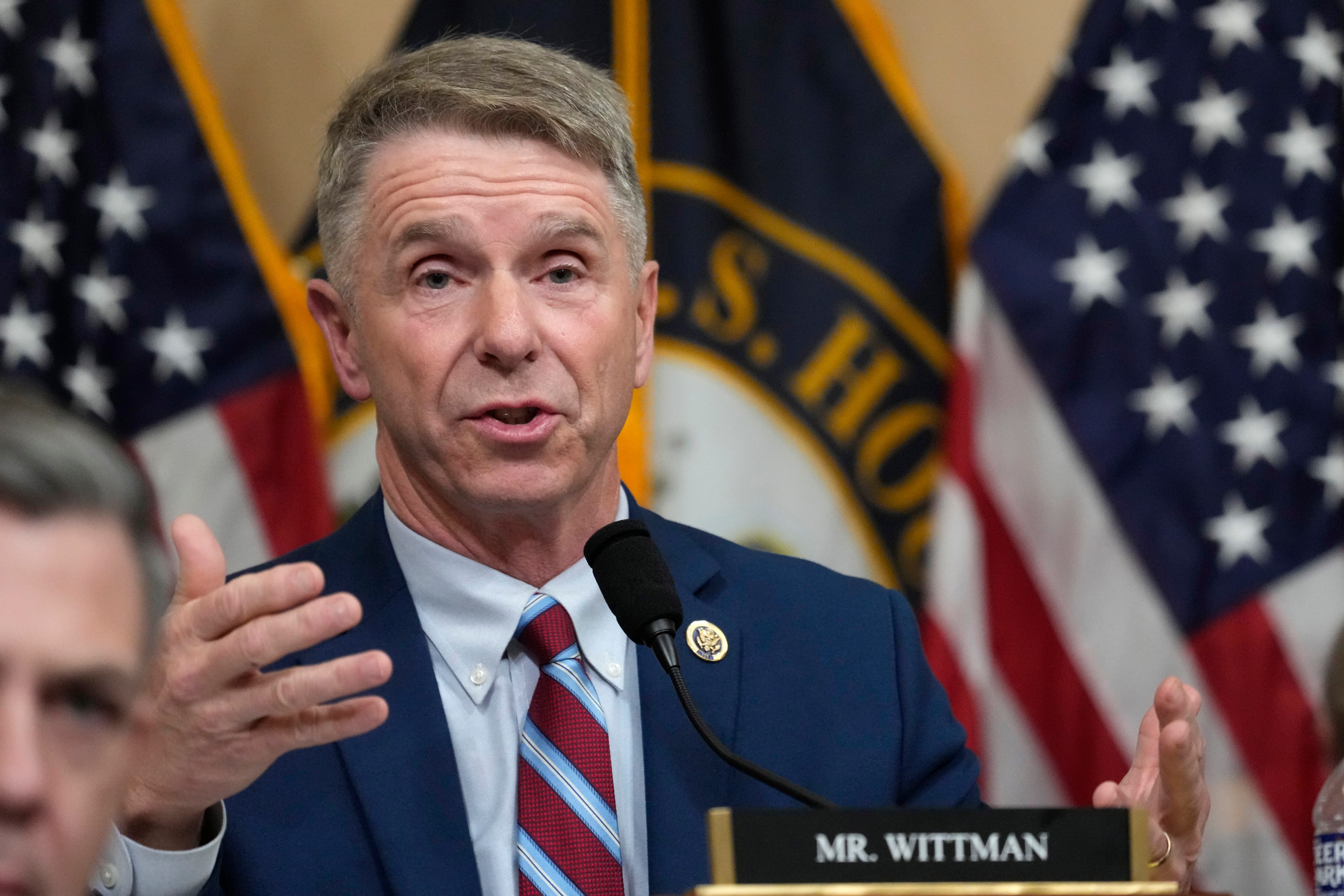WASHINGTON — A leading House lawmaker is downplaying the value of an Air Force and Pentagon proposal that would allow services to start working on new programs before Congress officially passes a budget funding them.
Rep. Rob Wittman, R-Va., told Defense News last week he is “still on the other side” of backing the so-called “quickstart” proposal. Instead, Wittman said from his office on Capitol Hill, “Congress needs to do its job” and pass spending bills on time.
“All you’re doing [with quickstart] is addressing the symptoms of lack of action by Congress,” said Wittman, chairman of the House Armed Services subcommittee on tactical air and land forces. “We need to be able to address the underlying causes … of why do we get to a point where we even need to look at quickstart dollars?”
In an earlier September interview, Air Force acquisition chief Andrew Hunter said the quickstart proposal would allow the service to begin initial contract work and early-stage program activities, even if a budget hadn’t yet been passed and the military is operating under a continuing resolution, which limits spending to prior year levels.
When the Air Force has to operate under a CR, Hunter said, it can hold informal talks with industry on new programs, but arranging contracts and setting up vendor pools is much harder.
Air Force Secretary Frank Kendall earlier this year began floating the quickstart proposal, which originally would have allowed the military to use up to $300 million to start new programs.
Congress, for the most part, responded unenthusiastically. It was originally in neither the House nor Senate’s proposed versions of the National Defense Authorization Act, although the Senate added this summer to its NDAA version a slimmed-down version that would allow all services to use up to $100 million for new starts .
Hunter said in the September interview the Air Force was encouraged by the Senate’s inclusion of a limited quickstart provision, and said the service would keep talking to lawmakers, seeking to convince the House to include it in the conference version of the NDAA that will ultimately become law.
Kendall said in a Sept. 11 roundtable at an Air Force conference he wasn’t aware of deep opposition to the proposal in the House. He noted he is “reasonably hopeful” it will ultimately end up in the conference NDAA.
Kendall told reporters at that conference there has been some confusion on the purpose of the quickstart proposal, and that it wasn’t geared towards continuing resolutions.
“It’s not intended to be an alternative to CRs,” Kendall said. “It’s really pointed at the normal budget process, without a CR. Where, because of the length of time it takes us to get into the DoD budget, and then have the DoD budget concerted and acted on, you’re already talking about well over a year. And you can save all of that time; we could move immediately ... to get started and reduce some of the lead time.”
Asked how he was leaning on the revised quickstart provision, Wittman did not explicitly rule it out and said he wants to hear the conversation during the conference negotiations.
But he otherwise responded coolly to the proposal, expressing concern it could be used to sidestep the normal budget process.
“I don’t want a situation where someone says, ‘Well, we’ll just put quickstart dollars in there, and we’ll kind of get around the process that normally happens with debate and transparency, and what happens with authorization and appropriation,’” Wittman said. “The appropriators love to have their control on things. I’m not one that believes, necessarily, it needs to be that micromanaged. But also, I don’t want to take pressure off of members of Congress.”
Wittman said a better path for providing more reliable funding for new Pentagon programs would be to create “forcing mechanisms” so lawmakers must pass appropriations bills before the end of the fiscal year. This could include withholding lawmakers’ paychecks or not allowing them to go home in August if spending bills aren’t passed, he added.
“If we did our jobs, you wouldn’t need quickstart provisions,” he said.
Stephen Losey is the air warfare reporter for Defense News. He previously covered leadership and personnel issues at Air Force Times, and the Pentagon, special operations and air warfare at Military.com. He has traveled to the Middle East to cover U.S. Air Force operations.





